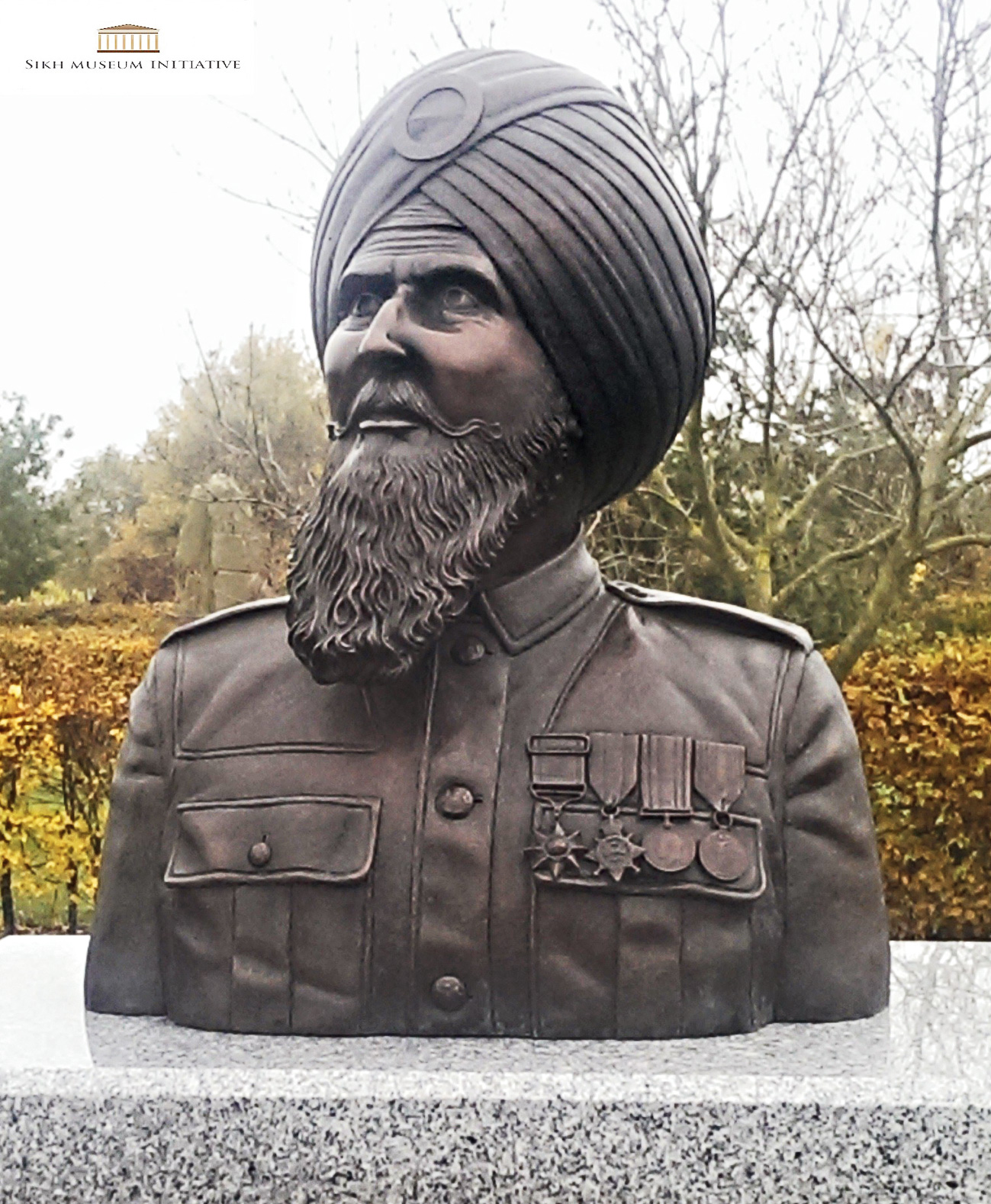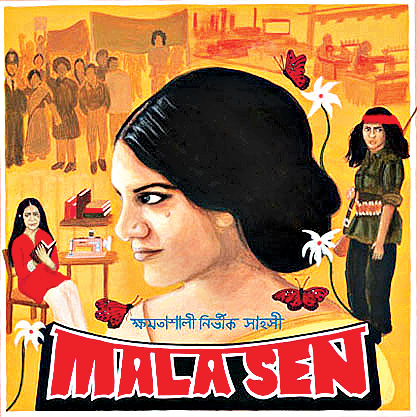
A memorial in honour of Sikh soldiers, who fought during World War One, at the National Memorial Arboretum in Staffordshire. Sikh Museum Initiative
An artwork featuring Mala Sen has gone up in Brick Lane, in the heart of the Bangladeshi settlement in East London, as part of a joint enterprise by the city’s mayor, Sadiq Khan, and Tate Britain to honour 20 women “who have played a crucial role in London’s history, but have been largely overlooked”. The author of Bandit Queen: The True Story of Phoolan Devi, died, aged 63, of cancer in 2011. She gifted me her last copy, one of my treasured possessions. To this day, I cannot drive past her old flat in Cathles Road in Balham, south London, without recalling her distinctive voice: “All right darling, come round when you are free and I will cook you some khana.”
The young artist, Jasmin Kaur Sehra, has, to my mind, captured Mala beautifully in her painting, which includes Phoolan, birds and butterflies to denote freedom, and “the Bengali words for powerful, fearless and courageous”. To her, “Mala was a women’s right campaigner and part of the British Asian and Black Panther movements. She campaigned for Bangladeshi rights in the Brick Lane area”.
Also featured in the LDN WMN project are Noor Inayat Khan, the British-Indian spy executed by the Nazis in 1944, and the Calcutta-born suffragette, Lolita Roy. Justine Simons, the deputy mayor for culture and creative industries, said: “As we mark 100 years since the first women secured the right to vote.... These 20 artworks in 20 different locations across the capital bring inspiring art to Londoners and visitors to our capital and provide a high-profile platform for exceptional artists too.”

Jodie Whittaker as Doctor Who. Amit Roy
Real sacrifices
Mahatma Gandhi would be pleased that this year, khadi poppies, which are a deeper shade of red than the normal ones, are being distributed through mosques, temples and gurdwaras to mark the centenary of the end of the First World War and remember the 1.5 million Indian soldiers, many of whom sacrificed their lives for Britain’s future. The man who came up with the idea of the khadi poppy is Lord Jitesh Gadhia, an Indian-origin Tory peer, who says: “The khadi poppy is a hugely symbolic and highly appropriate gesture to recognise the outsized contribution of Indian soldiers during World War One... British Asians should be proud of the role which their forebears played in shaping the destiny of the world.”
The London-based historian, Kusoom Vadgama, is among those who argue that without the Indian army, Britain would have lost the war. Kusoom, whose father, Maganlal Premji Vadgama, served as an auxiliary in Kenya, complained to the Evening Standard: “At the Festival of Remembrance at the Royal Albert Hall every November, the Indian and Empire soldiers are never mentioned. Watching the annual television programmes, one could be forgiven for thinking that Britain won both the world wars singlehanded. Surely this is a case of great injustice done to the very people who saved Britain.”
She regrets that Indian soldiers are now being split according to their religion, asserting: “They did not fight as Muslims or Sikhs or Hindus — they fought as Indian soldiers.” For example, Khudadad Khan is now projected as the “first Muslim to win a Victoria Cross”. However, the Daily Mirror of January 26, 1915, ran the story under the headline: “The First Indian to Win the Victoria Cross.”
That said, the Royal British Legion has endorsed the use of the khadi poppy, which was worn by the rival captains, Virat Kohli and Joe Root, during the India-England Test match at the Oval in September. The Legion says that at the Royal Albert Hall ceremony on November 10, “Indian soldiers will be remembered in a muster/gathering featuring all the flags of the Commonwealth in a moment in the Festival”.
A door closes, another opens
The Nobel laureate, Amartya Sen, will be dismayed to hear that Calcutta Street, the Bengali restaurant run by Srimoyee Chakraborty, where he relished the “shukto, laal saag, macher paturi and mishti doi”, has now “closed permanently”. It was good to know there was, at least, one restaurant offering Bengali cuisine among Britain’s 8,000-10,000 curry houses, although over half are run by people of Bangladeshi descent.
However, having recently won The Great British Bake Off, this is an opportunity for the Calcutta boy and 30-year-old research scientist from Rotherham, Rahul Mandal — assisted, of course, by his mother — to launch a line in Bengali food. Rahul has proved himself a dab hand at baking, but the market for cakes and pastries is crowded, whereas, as far as I know, you cannot get luchi, alur dom, begun bhaja and the like for love or money.
Packed with flavour
My life in London is generally uneventful apart from occasional forays to Waitrose, a relatively expensive supermarket chain which has just started advertising an intriguing new product — “beautifully simple Gujarati sweet potato curry”. I did once try a culinary experiment by putting sweet potato — apparently a healthier option than normal potato — into chicken curry, but it just disintegrated.
A spokesman for the supermarket chain tells me: “The Gujarati Sweet Potato Curry recipe was designed to create a simple mid-week meal that was packed full of lovely flavours, and we are keen to explore opportunities to add more regional recipes and flavours in the future.” Maybe Waitrose should recruit Rahul Mandal in the capacity of a consultant.
Footnote
Those who have seen Back to the Future (1985) will be familiar with the idea of going back to the past in a time machine to fix what is yet to happen. In the third episode of the current season of Doctor Who, Tardis pitched its occupants into Alabama in 1955, where Rosa Parks, a black woman, wouldn’t budge from a whites-only bus seat. The episode, “Demons of the Punjab”, takes Doctor Who, played by the brilliant Jodie Whittaker, to India during Partition. Can she forestall the impending holocaust?











